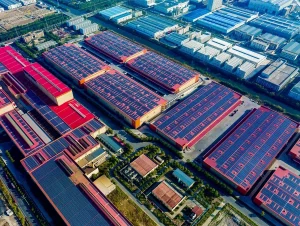
For two months, headlines rolling out of the Trump Administration related to the environment have been negative, including efforts to eliminate funds for renewable energy and efficiency projects, weaker EPA pollution rules and attempts to gut climate research at NOAA and other federal agencies.
But for now, most companies are sticking with plans to keep improving sustainability and cut climate-warming carbon emissions–even if they’re not talking as loudly about them, according to PwC’s State of Decarbonization report. In fact, the total number of companies with such plans is rising, with more than 4,000 sharing information in 2024–a more than nine-fold increase in the past five years.
Of corporate respondents, more than a third said they’re planning to set higher sustainability targets, while only 16% will likely be less aggressive, the survey found. Additionally, the report found that 83% of companies reported making R&D investments in low-carbon products and services.
A motivation for implementing more sustainable practices is that it’s good for the bottom line: products positioned as more sustainable can see a revenue increase of up to 25% compared with those that don’t, PwC found.
Whether the trends continue in the face of an administration that seeks major environmental policy rollbacks and prioritizes higher production and use of climate-warming fossil fuels remains to be seen. The fact that renewable electricity from large-scale wind and solar is now cheaper than conventional power sources suggests it might.
Partner With Us
The Institute for Sustainability Africa (INŚAF) is an independent multi-disciplinary think tank and research institute founded in Zimbabwe in 2010 with the Vision to advance sustainability initiatives for Africa.




